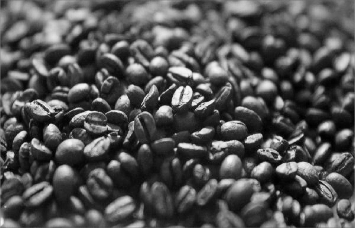Cancer warnings to be placed on coffee cups

Oct 16, 2018
Coffee consumption in America has become a staple of starting a morning, being a quick fix for energy and just a general indulgence and necessity of everyday life.
However, coffee drinkers might want to consider switching to tea after a California judge ruled that coffee in California will now come with a cancer warning label.
The state of California records a list of possible chemicals that are linked to cancer, acrylamide being one of them. Acrylamide is created when coffee beans are first roasted, and was the main reason the Council for Education Research on Toxics filed a lawsuit in L.A. in 2010, CNN reported.
More specifically, the lawsuit was aimed at a total of 90 companies, including Starbucks and BP, and also stated that there was a failure to report the risk of acrylamide to coffee drinkers. This intentionally violates California Law Proposition 65, which describes that companies must give its consumers a clear warning label.
In L.A. County, Superior Court Judge Elihu Berle stated, “Since defendants failed to prove that coffee confers any human health benefits, defendants have failed to satisfy their burden of proving that sound considerations of public health support an alternate risk level for acrylamide in coffee,” according to The New York Times.
However, the Coffee Association and other businesses are filing objections and their complaints regarding the fact they have now been ordered to pay fines and include warning labels on their products.
For example, William Murray, who is the chief executive of the Coffee Association, expressed his dissenting opinion to The Washington Post. Murray believes that, although acrylamide is proven to be present in coffee, the amount of it is not enough to warrant putting warning labels on coffee.
Murray, along with other businesses, argues that putting a warning label on coffee products would be confusing to consumers.
According to the National Cancer Institute, coffee is a major source of acrylamide, which is also present in food such as chips, bread, cereals and canned black olives.
Although some California companies may want to express their dissenting opinions similar to Murray’s, it might be in their best interest to settle and pay the fines. The New York Times reported that if companies continue to violate California’s Proposition 65, the state plans to fine them $2,500 per day for each violation. This case was originally filed eight years ago, and it is highly unlikely that the final ruling will be reversed.
Moving forward in the third phase of the trial, the court will now determine the civil penalties the business accused are responsible for.
This currently only affects coffee consumption and production in California, but it would not be surprising if this issue were brought up and further reviewed among other states.
It is ultimately the decision of coffee consumers as to whether they will continue their habits and rituals, but now, in California at least, they will have the ability to know the health risks of the product.
Editor’s Note: Information from The New York Times, The Washington Post and CNN were used in this report.











